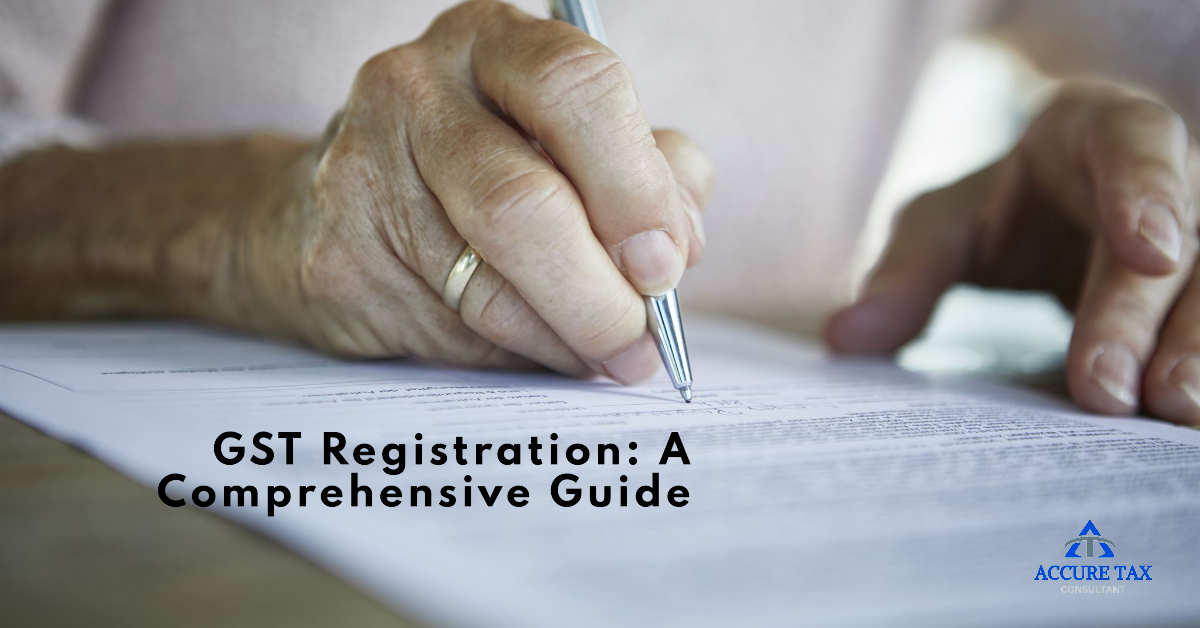
At Accure Tax Consultant (accuretaxconsultant.com), we understand that navigating the intricacies of India’s Goods and Services Tax (GST) can be a daunting task for businesses of all sizes. A crucial aspect of GST compliance is understanding when registration becomes mandatory. This comprehensive guide aims to answer your questions about GST registration and empower you to make informed decisions for your business.
The Goods and Services Tax (GST) is a unified indirect tax system implemented in India in 2017. It replaced a multitude of indirect taxes previously levied by the central and state governments, such as excise duty, service tax, VAT (Value Added Tax), and central sales tax (CST). GST simplifies tax administration, promotes transparency, and ensures a seamless flow of credit across the supply chain.
Knowing when to register for GST is vital for businesses. Here’s a breakdown of the mandatory registration criteria:
While registration is mandatory for businesses exceeding the specified turnover thresholds, certain exceptions exist. These include:
As of March 2024, India boasts over 1.3 crore (13 million) registered taxpayers under GST. This number has steadily risen since its implementation, reflecting the growing number of businesses in the formal economy. (Source: [Insert Source Here – Ministry of Finance Website or GST Portal Statistics])

Beyond the basic requirements, here are some additional scenarios to consider regarding GST registration:
Registering for GST is a relatively straightforward online process. You can visit the official GST portal and follow the steps outlined. The process typically requires documents such as PAN card, Aadhaar card, address proof, bank account details, and business registration documents (if applicable).
Understanding your GST registration requirements is crucial for navigating the Indian tax system seamlessly. Remember, this blog post serves as a general guide, and specific regulations might apply depending on your business nature and location. We strongly advise consulting a qualified tax consultant like Accure Tax Consultant (accuretaxconsultant.com) for personalized guidance on GST registration and compliance.
A: Failing to register for GST when mandatory can attract penalties and legal implications. These may include:
Yes, you can apply for deregistration if your turnover falls below the threshold limit for two consecutive financial years. However, there are certain conditions and procedures to be followed for deregistration. It’s advisable to consult a tax professional for guidance on the deregistration process.
The GST registration process is typically completed within 3-5 working days, provided all the documents are submitted correctly.
Yes, if you are registered under GST, you are required to file GST returns even if you have no sales or purchases during a particular tax period. In such cases, “nil” returns need to be submitted.
A: You can find comprehensive information about GST registration on the official GST portal or by contacting a qualified tax consultant like Accure Tax Consultant (accuretaxconsultant.com).
DISCOVER
PRODUCT
ADDRESS
RZF-110/1, 2nd Floor, Gali No- 40, Main 60 Fit Road, Upper Punjab National Bank, Sadh Nagar-II, Palam Colony, New Delhi -110045
Copyright © 2024 Accure Tax Consultant.